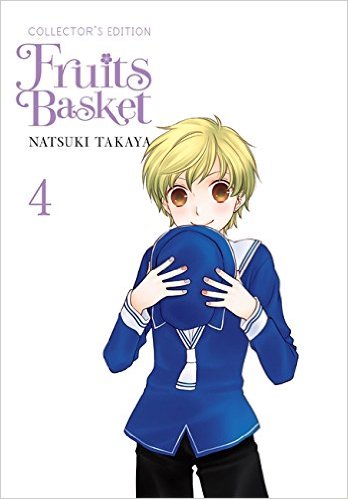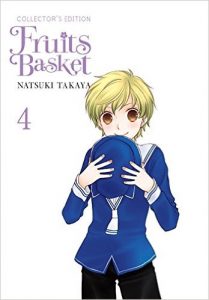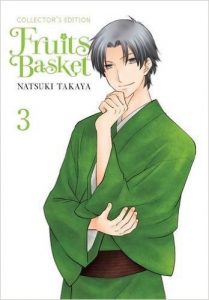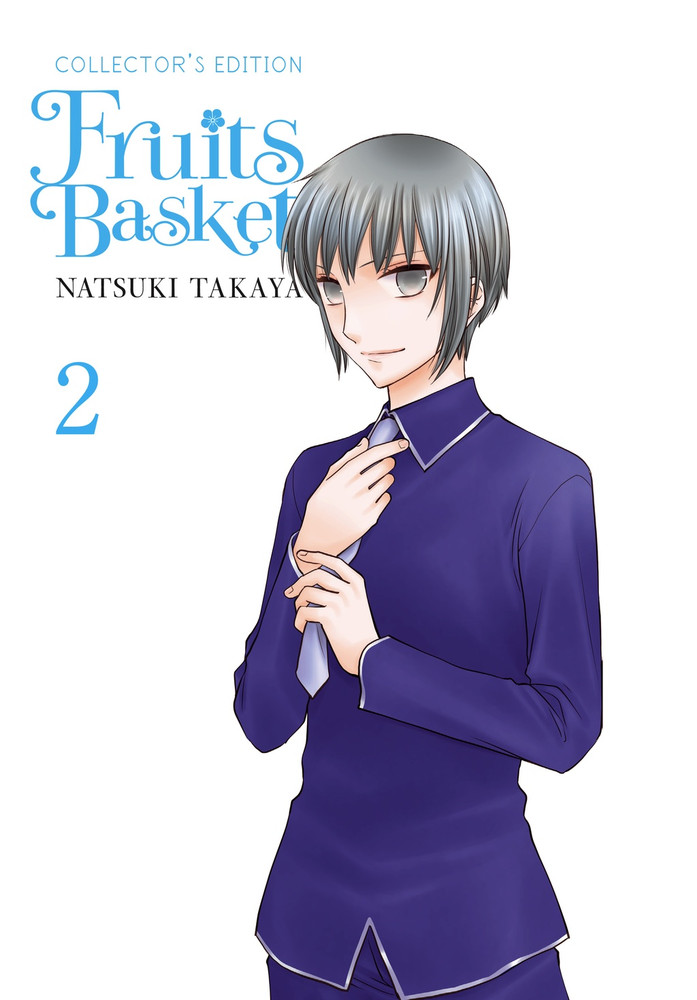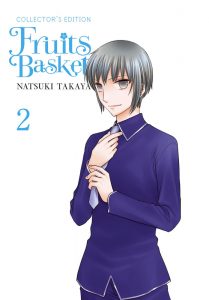By Natsuki Takaya. Released in Japan by Hakusensha, serialized in the magazine Hana to Yume. Released in North America by Yen Press. Translated by Sheldon Drzka.
As I’ve said a few times before, you can usually tell when a series has suddenly become a big hit by the writing. Fruits Basket has hit it big, to the point where the Hakusensha editors must have told Takaya she can stretch it out how she wants. And so we can get extended flashbacks devoted to Uotani, Tohru’s yanki friend, and how she went from a middle school delinquent to one of Tohru’s strongest protectors. We also get a brief one-chapter day in the life of Minagawa, the over the top president of the Yuki Fan Club, who like any other teenage girl is filled with doubts and insecurities of her own. And we see foreshadowing that I had forgotten happens this early, as the new Student Council members, whose faces are hidden from us, discuss their interest in Yuki… and Tohru. Are they SECRETLY EVIL? (Answer: no, but it’s a nice ominous cliffhanger that won’t be resolved for a while yet.)
We are also introduced to two more Sohmas. I’ll start with Ritsu, as I’m less interested in him. He’s deliberately grating, in a way that irritates everyone not named Tohru, but it’s not without cause, and once again shows us how hard it is to be living with the Sohma curse, or living with someone who has it. Also, his meeting with Micchan is hilarious – they really are perfect for each other. More important to me is the introduction of Hiro, who I suspect will annoy the new reader even more than Ritsu does. Hiro’s a brat, there’s no mistaking it, and what’s worse, he’s smart and insightful but can’t deal with the emotions that go along with that. Throw in a crush on Kisa, and some veiled suggestion that telling Akito he was in love with her was the worst thing ever, and I find a lot to sympathize with. He also pegs Tohru perfectly, albeit rudely, and we start to see the first signs of the cracks showing in her all-loving facade here, as she admits that she focuses on others to the exclusion of her own needs mostly out of desperately not wanting to look hard at herself.
I’d mentioned foreshadowing before, and the other big introduction we see here will have to wait till next time, which is Rin. She’s in hospital, apparently put there by Akito, and judging by the fact that she’s recently broken up with Hatsuharu, seems to be trying to cut all ties – except to Shigure, who she’s convinced can help her. Rin looks scary, to be honest, and given how popular Haru is with fandom, it’s no surprise that she too gets off on the wrong foot in Furuba fandom, only she doesn’t have the benefit of being a cute guy in this female-driven fandom, so it seems worse. Oh yes, and we also get more of the Yuki backstory that was hinted at in the last omnibus, and I feel bad for saying that Akito smothered him – there was just as much abuse as everyone else has had to ensure. Being a Sohma is suffering.
This is about where the anime broke off, with its adapted ending that to this day doesn’t quite sit right with me. It’s also where Takaya hurt her hand, causing the manga to go on hiatus for a year. It stayed popular in Japan, and became huge over here, but I wonder if we may have gotten a second season otherwise. (Probably not – allegedly she had issues with the director, similar to Kare Kano.) In any case, the first few books in Furuba show us sad teens with emotional problems, but as we move forward, the depth of the writing shows that the sadness and the emotional problems have not begun to be plumbed. If you never read this the first time, you’re missing out.
